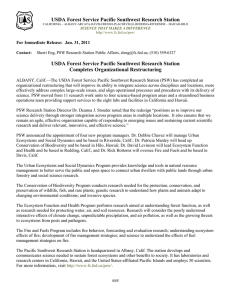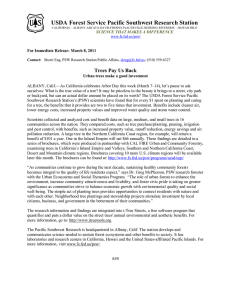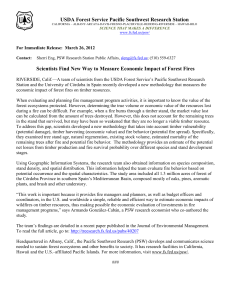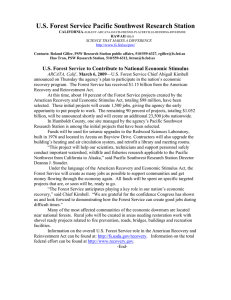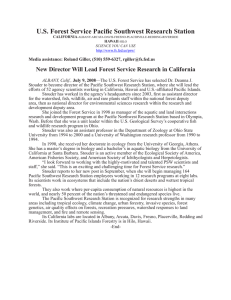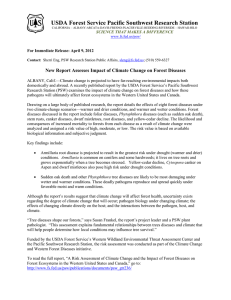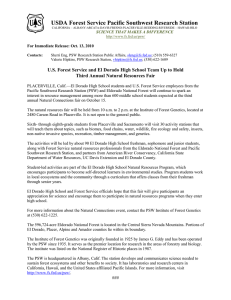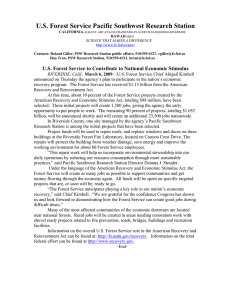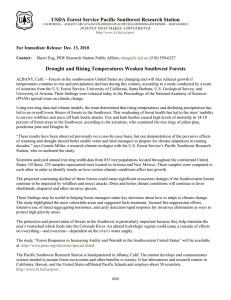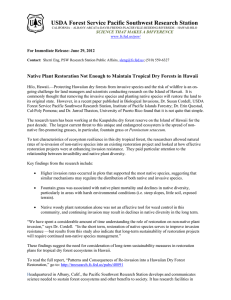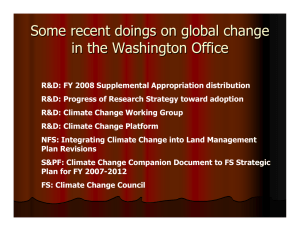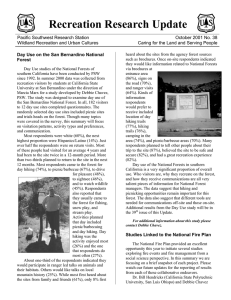USDA Forest Service Pacific Southwest Research Station
advertisement
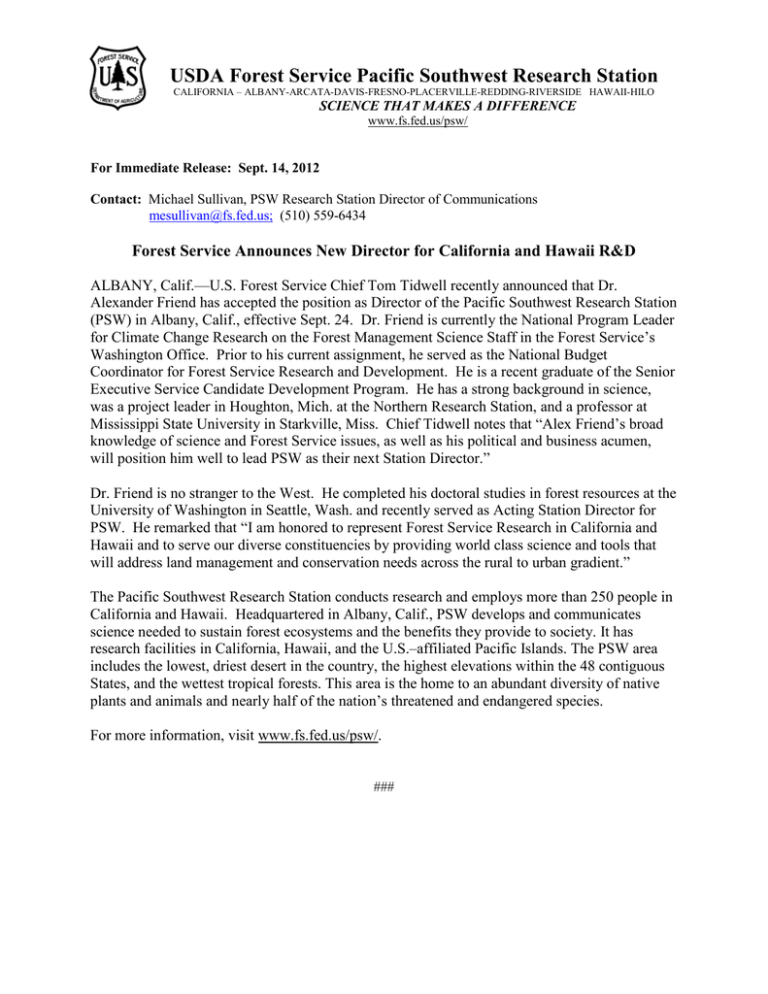
USDA Forest Service Pacific Southwest Research Station CALIFORNIA – ALBANY-ARCATA-DAVIS-FRESNO-PLACERVILLE-REDDING-RIVERSIDE HAWAII-HILO SCIENCE THAT MAKES A DIFFERENCE www.fs.fed.us/psw/ For Immediate Release: Sept. 14, 2012 Contact: Michael Sullivan, PSW Research Station Director of Communications mesullivan@fs.fed.us; (510) 559-6434 Forest Service Announces New Director for California and Hawaii R&D ALBANY, Calif.—U.S. Forest Service Chief Tom Tidwell recently announced that Dr. Alexander Friend has accepted the position as Director of the Pacific Southwest Research Station (PSW) in Albany, Calif., effective Sept. 24. Dr. Friend is currently the National Program Leader for Climate Change Research on the Forest Management Science Staff in the Forest Service’s Washington Office. Prior to his current assignment, he served as the National Budget Coordinator for Forest Service Research and Development. He is a recent graduate of the Senior Executive Service Candidate Development Program. He has a strong background in science, was a project leader in Houghton, Mich. at the Northern Research Station, and a professor at Mississippi State University in Starkville, Miss. Chief Tidwell notes that “Alex Friend’s broad knowledge of science and Forest Service issues, as well as his political and business acumen, will position him well to lead PSW as their next Station Director.” Dr. Friend is no stranger to the West. He completed his doctoral studies in forest resources at the University of Washington in Seattle, Wash. and recently served as Acting Station Director for PSW. He remarked that “I am honored to represent Forest Service Research in California and Hawaii and to serve our diverse constituencies by providing world class science and tools that will address land management and conservation needs across the rural to urban gradient.” The Pacific Southwest Research Station conducts research and employs more than 250 people in California and Hawaii. Headquartered in Albany, Calif., PSW develops and communicates science needed to sustain forest ecosystems and the benefits they provide to society. It has research facilities in California, Hawaii, and the U.S.–affiliated Pacific Islands. The PSW area includes the lowest, driest desert in the country, the highest elevations within the 48 contiguous States, and the wettest tropical forests. This area is the home to an abundant diversity of native plants and animals and nearly half of the nation’s threatened and endangered species. For more information, visit www.fs.fed.us/psw/. ###
